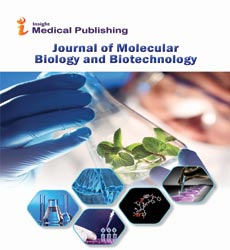Ftir spectroscopy as a complementary approach to biochemical analysis of metabolites- a case example of algal biology in the analysis of storage
Ranjith Kumar Bakku
University of Tsukuba, Japan
Received Date: 2022-01-03 | Accepted Date: 2022-01-06 | Published Date: 2022-01-28
Abstract
The current study targeted the frequently reported C/T SNP (rs2981582) of FGFR2 gene to test the role of this SNP in the susceptibility to breast cancer in Sudanese women. We evaluated the role of FGFR2 gene polymorphism (rs2981582) and some non-genetic risk factors on the risk of breast cancer among Sudanese females.We also evaluated the interactions between known risk factors and C/T SNP of FGFR2. The rs2981582 single nucleotide polymorphism in the Fibroblast Growth Factor Receptor 2 gene has been constantly associated with an increased risk of susceptibility to breast cancer. DNA was extracted and PCR-RFLP data from 81 cases and 81controls were analyzed. The risk allele (T allele) of the rs2981582 polymorphism was associated with an increased risk of breast cancer (P-value= 0.0017) (OR =2.2, CI95%=1.34 to 3.53). Significant association was also encountered between cases carrying this polymorphism and history of benign tumors (P-value = 0.0001), and those with family history of breast cancer in first degree relatives (P-value=0.045) (OR=7.22 CI95%=1.047 to 81.2). For genotype risk assessment, breast cancer risk significantly increased with TT genotype (P-value =0.0023) (OR=1.711 CI95%=1.16 to 4.04) when compared to the other two genotypes (CC and CT). Conclusion and significance: Our findings suggest that FGFR2 rs2981582 is significantly associated with breast cancer susceptibility in Sudanese women and present a potential biomarker for breast cancer prediction.
Open Access Journals
- Aquaculture & Veterinary Science
- Chemistry & Chemical Sciences
- Clinical Sciences
- Engineering
- General Science
- Genetics & Molecular Biology
- Health Care & Nursing
- Immunology & Microbiology
- Materials Science
- Mathematics & Physics
- Medical Sciences
- Neurology & Psychiatry
- Oncology & Cancer Science
- Pharmaceutical Sciences
